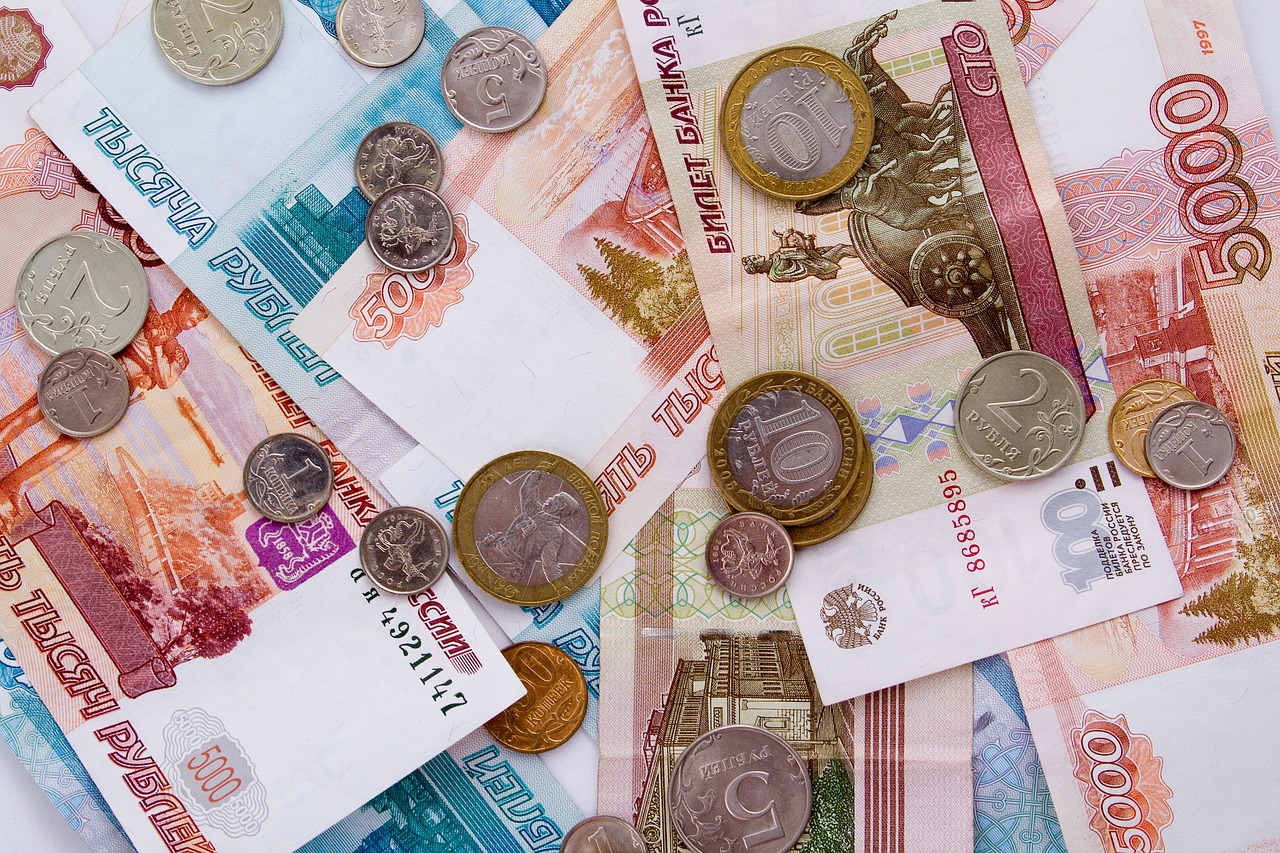Cracking the Code of the Russian Economy

Exploring the complexities and inner workings of the Russian economy reveals a fascinating landscape of opportunities and challenges. Russia's economy is a unique puzzle, with various sectors playing crucial roles in shaping its overall performance. From energy to agriculture, manufacturing to technology, each industry contributes to the intricate web of the Russian economy.
Key industries in Russia, such as energy, hold significant influence over the country's economic stability. The energy sector, dominated by oil and natural gas production, not only drives domestic growth but also plays a pivotal role in global energy markets. Agriculture, on the other hand, showcases Russia's vast natural resources and agricultural potential, contributing to both domestic consumption and exports.
Manufacturing and technology sectors in Russia are also key players in the economy, with manufacturing supporting various industries and providing employment opportunities. The technology sector, although still developing, holds promise for future growth and innovation, positioning Russia as a player in the global tech scene.
Despite the strengths of these key industries, the Russian economy faces numerous challenges that threaten its stability and growth. Sanctions imposed by Western countries, political instability, and the country's heavy reliance on oil exports all pose significant hurdles. These challenges require strategic solutions and innovative approaches to ensure long-term economic prosperity.
However, amidst these challenges lie opportunities for growth and development. Diversification of the economy, investment in infrastructure, and fostering a business-friendly environment can open doors to new possibilities. By leveraging its strengths and addressing its weaknesses, Russia can navigate the complexities of its economy and emerge stronger than ever.
Foreign investment plays a crucial role in shaping the Russian economy, bringing in capital, expertise, and opportunities for collaboration. Understanding the trends and regulations surrounding foreign investment is essential for both domestic businesses and international partners looking to engage with Russia. The impact of international partnerships on the country's economic performance cannot be understated, highlighting the importance of fostering a welcoming environment for foreign investors.
Key Industries in Russia
An essential aspect of understanding the Russian economy is delving into its key industries, which play a crucial role in shaping the country's economic landscape. Russia boasts a diverse array of sectors that contribute significantly to its GDP and overall development. Let's take a closer look at some of the main industries that drive the Russian economy:
- Energy: The energy sector is a cornerstone of the Russian economy, with the country being one of the world's leading producers of oil and natural gas. Russia's vast energy reserves not only fuel its domestic market but also drive its exports, making it a key player in the global energy market.
- Agriculture: Agriculture is another vital industry in Russia, with the country's vast land area supporting a diverse range of agricultural activities. From wheat and barley to dairy and livestock, Russia's agricultural sector plays a crucial role in ensuring food security and contributing to the economy.
- Manufacturing: The manufacturing industry in Russia encompasses a wide range of sectors, including automotive, aerospace, machinery, and electronics. Russian manufacturing companies produce a variety of goods for both domestic consumption and export, contributing significantly to the country's industrial output.
- Technology: The technology sector in Russia has been experiencing rapid growth in recent years, with a focus on innovation and digital transformation. Russian tech companies are making a mark in areas such as software development, cybersecurity, and artificial intelligence, driving technological advancement in the country.
These key industries not only drive economic growth in Russia but also have a significant impact on the country's overall competitiveness and global standing. By understanding the strengths and challenges of these sectors, we can gain valuable insights into the dynamics of the Russian economy and its future trajectory.
Challenges and Opportunities
When delving into the intricacies of the Russian economy, one cannot ignore the numerous challenges it faces, along with the promising opportunities that lie ahead. The landscape is a mix of hurdles and potential growth avenues, creating a dynamic environment that demands attention and strategic planning.
One of the major challenges plaguing the Russian economy is the impact of sanctions imposed by various countries due to geopolitical tensions. These sanctions have restricted access to international markets and technology, hindering the country's economic progress and development. Navigating through these restrictions requires resilience and innovative solutions to mitigate their effects.
Political instability is another significant challenge that the Russian economy grapples with. Uncertainty in the political landscape can lead to fluctuations in policies and regulations, creating a sense of unpredictability for businesses and investors. Adapting to these changes and maintaining stability amidst such turmoil is crucial for sustained economic growth.
Furthermore, the Russian economy's heavy reliance on oil and gas exports poses a vulnerability, especially in the face of fluctuating global oil prices. Diversification of the economy to reduce this dependency is essential for long-term stability and resilience against external shocks. Exploring new avenues for growth beyond the energy sector is vital for sustainable economic development.
Despite these challenges, the Russian economy also presents numerous opportunities for growth and expansion. The country's vast natural resources, skilled workforce, and burgeoning technology sector offer a solid foundation for innovation and progress. Leveraging these strengths effectively can propel the economy towards new heights of success.
Exploring partnerships with foreign investors and expanding international collaborations can open doors to new markets and investments, driving economic growth and fostering innovation. Embracing globalization and capitalizing on emerging trends in the global economy can position Russia as a key player on the world stage, attracting opportunities for trade and investment.
In conclusion, while the Russian economy faces its fair share of challenges, it also holds immense potential for growth and development. By addressing the obstacles head-on and seizing the opportunities presented, Russia can unlock its full economic potential and thrive in the ever-evolving global landscape.
Foreign Investment in Russia
Foreign investment plays a crucial role in shaping the Russian economy, influencing its growth and stability. With the opening up of the Russian market to international investors, there has been a significant influx of capital into various sectors, driving innovation and development.
One of the key trends in foreign investment in Russia is the focus on strategic partnerships and joint ventures. International companies are increasingly looking to collaborate with Russian firms to leverage their expertise and resources, creating mutually beneficial relationships that contribute to the overall economic growth.
Regulations governing foreign investment in Russia have been evolving to attract more capital while ensuring the protection of domestic industries. The government has implemented measures to streamline the investment process, providing incentives and guarantees to foreign investors looking to enter the Russian market.
International partnerships have played a vital role in enhancing the competitiveness of Russian industries, particularly in sectors such as energy, technology, and manufacturing. By bringing in foreign expertise and capital, these collaborations have helped modernize and expand the capabilities of Russian companies, making them more competitive on a global scale.
Despite the opportunities presented by foreign investment, challenges remain, including geopolitical tensions, regulatory uncertainties, and currency fluctuations. These factors can impact the confidence of foreign investors and affect the flow of capital into the Russian economy, highlighting the need for a stable and predictable investment environment.
In conclusion, foreign investment in Russia continues to be a driving force behind the country's economic development, fostering innovation, creating jobs, and boosting productivity. By fostering strong partnerships with international investors and implementing supportive policies, Russia can further attract capital inflows and strengthen its position in the global economy.

 yazar
yazar 





